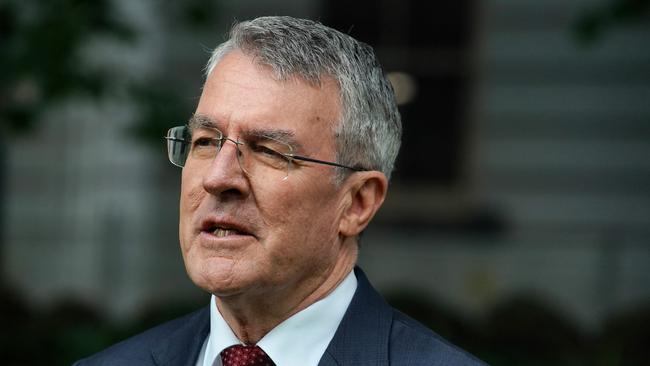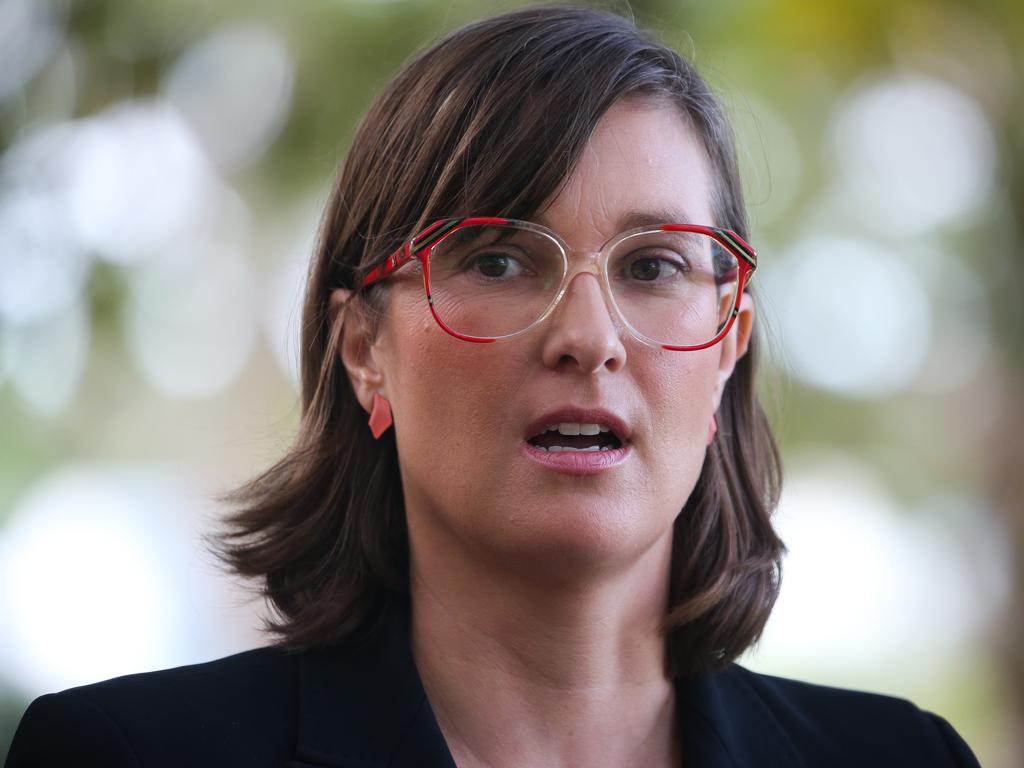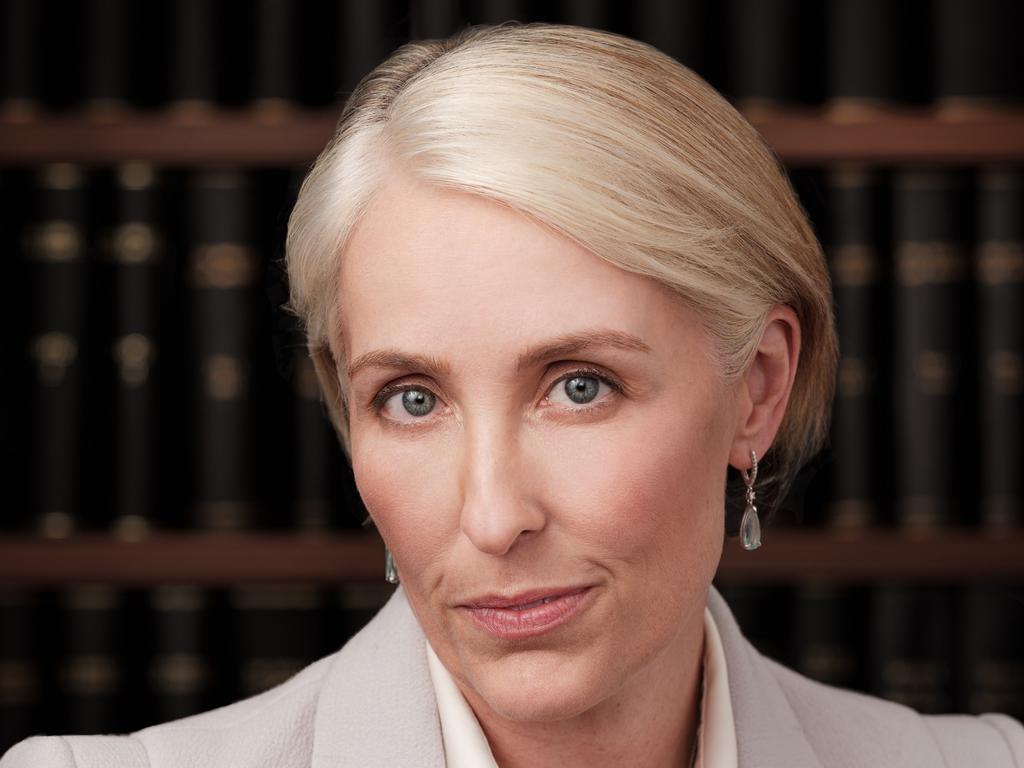‘Alternative’ justice to be probed in Albanese government’s rape law review
Alternatives for putting alleged rape victims through the trauma of criminal trials are being investigated in a probe into the nation’s approach to sexual assault.

Alternatives for putting alleged rape victims through the trauma of criminal trials, including compensation schemes and civil claims, are being investigated in a new probe into the nation’s approach to sexual assault.
Attorney-General Mark Dreyfus on Tuesday will unveil the terms of a wide-ranging Law Reform Commission inquiry into sexual assault cases, which will investigate frameworks about evidence, court processes and jury directions and laws about consent.
The inquiry, launched as part of Labor’s $14.7m commitment to strengthen the way the criminal justice system responds to sexual assault, will also consider whether more training is needed for judges, lawyers and police to enable “trauma-informed and culturally safe justice responses.”
Mr Dreyfus has appointed former Victorian Supreme Court judge Marcia Neave and South Australia District Court judge Liesl Kudelka as part-time commissioners to head up the inquiry.
“All too often, seeking justice adds to the trauma experienced by victims and survivors,” Mr Dreyfus said. “This inquiry will look at how we can improve victims’ and survivors’ experiences in the justice system by examining relevant laws and legal frameworks, justice sector practices, supports for victims and survivors, and transformative approaches to justice.”
The ALRC’s terms of reference were informed by a national roundtable on justice responses to sexual violence held last year, which was attended by former Australian of the Year Grace Tame, consent education advocate Chanel Contos and founder of the #LetUsSpeak campaign Nina Funnell.
The terms state that the inquiry will investigate “laws and frameworks about evidence, court procedures/processes and jury directions”, “laws about consent”, and “policies, practices, decision-making and oversight and accountability mechanisms for police and prosecutors”.
It also look into “support and services available to people who experience sexual violence”.
“This should include consideration of current supports such as legal assistance, appropriately trained and accredited interpreters, witness assistance and intermediaries, and the accessibility of those supports; innovative supports including independent legal representation and information and resources provided to victims and survivors about supports available and justice processes,” the terms of reference read.

The commissioners will have regard to “alternatives to, or transformative approaches to, criminal prosecutions including restorative justice, civil claims, compensation schemes and specialist court approaches”.
Queensland Sexual Assault Network chief executive Angela Lynch, who was a part of the roundtable that informed the ALRC terms of reference, told The Australian she wanted the inquiry to produce “innovative responses … because it may be that not all survivors want to go through a criminal justice system”.
“There may be that there are credible alternatives and it would be good for the Australian Law Reform Commission to evaluate those and make some proposals or suggest some models that will be best suited for implementation,” she said.
Ms Lynch said she hoped the inquiry would boost convictions for offenders.
“We’ve got a 1.7 per cent conviction rate. The current system is not working for victim survivors, or more broadly for the community,” she said.
“No one could think that conviction rate is acceptable.”
Ms Lynch said one of the key barriers that rape victims faced was not being believed when they reported their attackers, and the “shame” associated with that.
“We’ve got to look at different ways of approaching this issue,” she said.
“Obviously, the ALRC and their expertise can provide some guidance to states in relation to what reforms may be required to better the system.”
Victim survivors should be at the centre of the inquiry, Ms Lynch said, because “we really need to understand from victim survivors what they want from the system”.
“What is justice for victim survivors?” she said.
“What does justice look like? What does safety look like?
“What does accountability look like in our legal system for victims survivors?”
The inquiry will be informed by a sexual-violence “lived experience” group to “ensure the real life experience of victims and survivors are front and centre”.
The group will also advise government on implementing ALRC recommendations.
Women’s Minister Katy Gallagher said “we consistently hear from women about the issues that affect them – and, sadly, sexual violence is raised all too often as something that impacts women’s lives”.
“Seeking justice shouldn’t add to the trauma for victims and this inquiry will look at ways to not only strengthen sexual assault laws but to improve the outcomes and experiences for victims and survivors,” she said.
The law reform inquiry is the latest initiative as part of the Albanese government’s commitment to bettering outcomes for sexual assault victims.
The Australian last year revealed a report, commissioned by Mr Dreyfus’s department in conjunction with the Australasian Institute of Judicial Administration and delivered to all state and territory attorneys-general, that outlined “specialist measures” to break down barriers that prevented victims from reporting sexual assaults.
The report discussed how to minimise the impact of “inappropriate questioning by defence counsel” by potentially mandating special training for all counsel appearing in sexual offence cases, and using intermediaries when necessary.
Remote evidence facilities and the use of screens were also cited as opportunities to “provide greater choice for a victim survivor and reduce the risks of retraumatisation inherent in giving evidence before a defendant”.
“The removal of wigs and gowns, and closed courts, facilitate a greater sense of compassion, humanity and privacy,” the report read.






